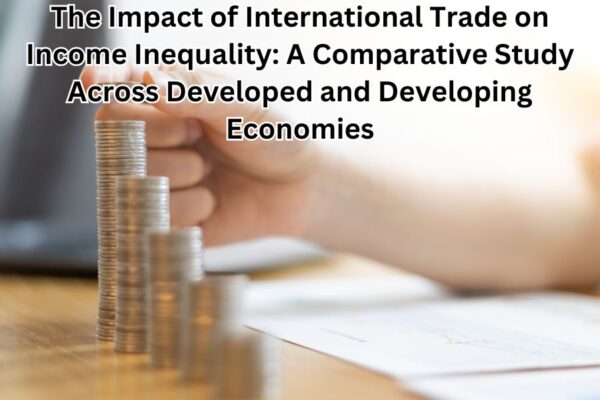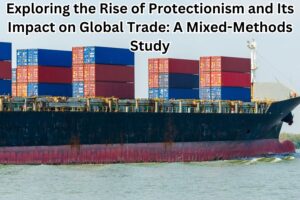Description
The Impact of International Trade on Income Inequality: A Comparative Study Across Developed and Developing Economies
Abstract
International trade highly impacts income inequality irrespective of economic growth of a nation. Liberalization of international trade within several organizations created a boost to economic growth and yet lacks proper reach ability to entire population. This study investigates impact of open policies for trade and its impact while comparing economic situations of both developed and developing nations. Moreover this offers a clear visibility and moderating impact on trade policies. Within developed economies, scenarios such as wage gaps based on job skills lead to stagnation of jobs. However, this can be observed in developing countries that boost new job opportunities and yet lead to broad income inequality for rural and urban populations.
Governments and trade policies can be utilized to eradicate these inequalities that encourage trade agreements. However talent programs for low-skilled workers enable them to utilize new programs and gain opportunities from trade systems. Reinforcing with new labor rights can encourage ware regularization without workforce exploitation. However this research offers an intensive study to understand the threshold of trade for developing countries that offers benefits and crossing that threshold leads to income inequality among several regions. With improved policies and regulations, there emerge favorable conditions for private sector organizations. Generally, this mandates institutional moderators to promote economic situations with equitable distribution of benefits earned from trade maximizations without disparities.
Nations that handle international trade with significant approaches sustain balanced growth with lowered discrimination. These perfectly regulated trade options encourage several benefits for a large group of population. Generally, this study aims to discuss future of trade policies that critically concentrate on decreasing disparities with economic boosts for both developing and developed nations. Fairer trade can help secure low-income groups and individuals eliminating risk for developing organizations.
Read more about the topic
International Trade and Income Inequality
View Other Projects on International Trade








Reviews
There are no reviews yet.